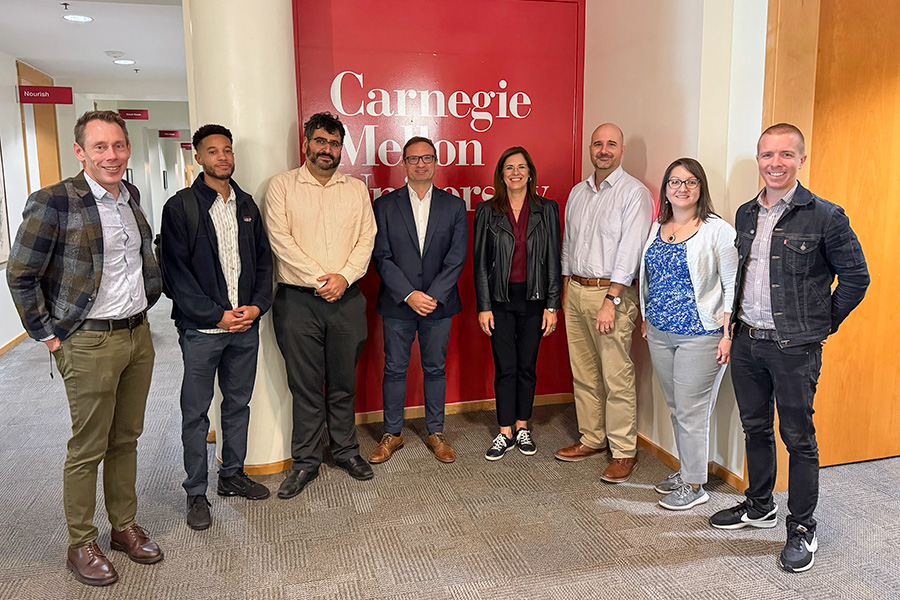
Making Pittsburgh a global leader in green aviation
By Giordana Verrengia
Media Inquiries- Communications Manager
“The aviation industry has set a big goal to decarbonize by 2050,” Christina Cassotis, CEO of the Allegheny County Airport Authority (ACAA), said last week at a Scott Institute Distinguished Lecture. “That work starts here in Pittsburgh.”
Since becoming CEO of the ACAA in 2015, Cassotis has driven Pittsburgh International Airport’s transformation from former connecting hub to current center of research and development for greener aviation worldwide. Cassotis visited Carnegie Mellon on October 3rd to discuss potential collaborations with Scott Institute researchers to help drive her vision, and to deliver the latest installment of the Scott Institute’s Distinguished Lecture Series, providing key examples of how the airport is leveraging its 8,800 acres of land to meet global aviation challenges.
“Carnegie Mellon and the Scott Institute for Energy Innovation make great partners because they offer world-class research expertise that can change a global industry, while remaining invested in the creation of more efficient resources that benefit the Pittsburgh region,” said Cassotis.
The biggest project underway is the construction of a new airport terminal. The facility is expected to open in 2025 and will meet standards for LEED Gold Certification from the U.S. Green Building Council.
Another innovation is the airport’s microgrid, launched in 2021, which generates all the power the airport needs, making the airport more resilient to electricity grid outages and clearing a path to integrate more onsite renewable energy.
One of Cassotis’ main priorities is for the Pittsburgh airport to eventually create sustainable aviation fuel (SAF) at the airport to serve the needs of airlines coming in and out of Pittsburgh as well as the needs of airports regionally, nationally, and internationally.
“Do you know how sustainable aviation fuel gets to the US today? The sugar cane from Brazil is barged to Singapore. In Singapore, they create the sustainable aviation fuel and then barge it to the US. So that’s what we’re disrupting,” said Cassotis.
Before the lecture, Cassotis met privately with Scott Institute leadership and several faculty members to discuss potential collaborations on both of these efforts.
“The Pittsburgh International Airport is leading energy innovation here in Pittsburgh that will influence an industry whose emissions have been called hard to abate, and we’re seeing Christina and her leadership team redefine what it means to be a sustainable airport in the 21st century,” said Costa Samaras, director of the Scott Institute.
In his opening remarks, Raj Rajkumar, director of the Metro21: Smart Cities Institute, said that CMU views the campus, the city of Pittsburgh, and Allegheny County as a living laboratory for addressing practical needs such as safe mobility, smart infrastructure, and net zero energy.
Many of the collaborations between CMU and ACAA are facilitated through Metro21, which owns a portfolio of over 60 projects. One example was a mobile application developed by Traffic21 researchers that makes long-term parking more efficient by guiding passengers to the empty spots closest to their terminal entryways.
“I think, in many ways, an airport is like a city. Many of the issues it deals with, like transportation, parking, and wayfinding — are things that city communities are figuring out, too,” said Karen Lightman, Metro21’s executive director. “It’s almost like a testbed for the real world, and yet it is the real world.”
Lightman looks forward to pursuing more collaborative research projects.
“This partnership is a fantastic opportunity for students to get an understanding of how systems work, including those who study outside of engineering in areas like architecture, design, computer science, and policy,” she said.